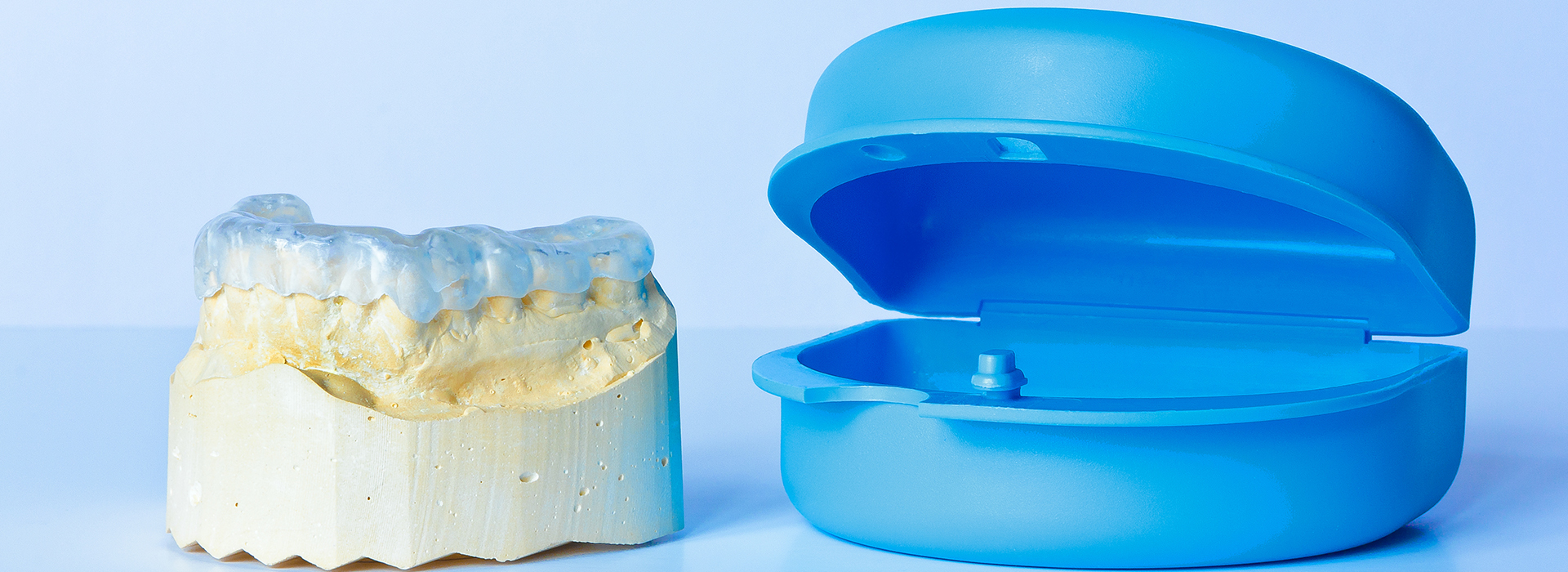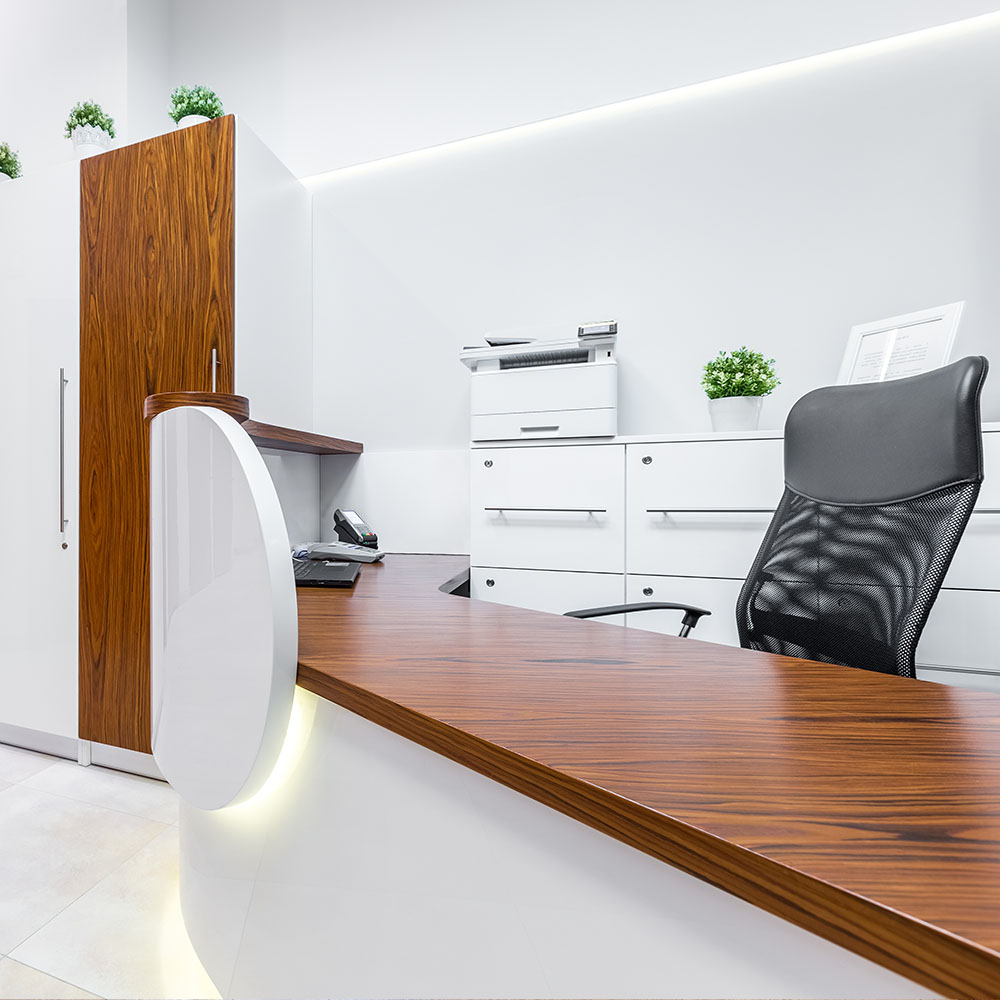New Patients
Existing Patients


Many people assume teeth grinding—bruxism—is simply a bad habit, but it is often a physical response to a mix of factors. Stress and anxiety are well-known triggers, yet sleep-disordered breathing, an uneven bite, missing teeth, and certain medications can also contribute. Because bruxism frequently takes place during sleep, you may be unaware of the behavior until symptoms begin to appear.
Common warning signs include waking with a sore jaw, morning headaches that feel like pressure at the temples, and teeth that are sensitive or appear worn. Some patients notice a limited ability to open the mouth fully or a persistent ache in the muscles around the face. In other cases a partner may report hearing grinding noises at night, which is a clear indicator of nocturnal bruxism.
Left unchecked, grinding and clenching can strain the temporomandibular joint (TMJ), damage tooth enamel, and accelerate wear on dental restorations. Early recognition and a timely intervention—often starting with a protective appliance—can stop minor problems from becoming complex dental or joint issues.
A night guard is a simple, effective barrier that separates the upper and lower teeth to prevent direct contact during episodes of grinding. By redistributing and absorbing the forces produced when the jaw muscles contract, the appliance reduces pressure on the TMJ and limits the potential for chipping, cracking, or excessive wear. The goal is protection first; symptom relief and behavioral change often follow.
Night guards also help relax the muscles by creating a small, stable space between the jaws. This can interrupt the clenching pattern and reduce muscle fatigue over time. For patients with TMJ discomfort, a properly designed guard may alleviate pain and improve jaw mobility, although it is one component of a larger treatment plan when joint pathology is present.
Because the concept is mechanical rather than medicinal, night guards are non-invasive and reversible. They do not alter tooth structure permanently, which makes them a conservative first-line option for managing bruxism and its consequences while a dental team evaluates longer-term needs.
Over-the-counter solutions may seem convenient, but they are made to fit a generic mouth and frequently fail to address individual bite relationships. Custom night guards are fabricated from impressions or digital scans of your teeth, so they fit snugly, distribute forces evenly, and feel more comfortable over extended wear. A precise fit also minimizes speech disruption and reduces the risk of the device shifting during sleep.
Material choice and thickness are tailored to each patient’s grinding intensity and dental condition. Softer guards can offer cushioning for milder cases, while more robust acrylic appliances provide stronger protection for heavy grinders. A custom device can also accommodate existing restorations—crowns, bridges, or implants—so that protection is comprehensive and predictable.
Clinically guided appliances come with the advantage of follow-up and adjustment. If the bite changes or wear patterns develop, your dentist can modify the guard to maintain optimal protection. That professional oversight is a key reason why custom guards generally provide better long-term outcomes than one-size-fits-all options.
The process begins with a thorough evaluation of your symptoms, a review of your dental history, and an examination of wear patterns on your teeth. Imaging or a referral to a sleep specialist may be recommended when sleep apnea or another disorder is suspected. The objective is to identify contributing factors so the night guard is one part of a comprehensive plan, not a lone solution.
If a custom guard is recommended, the next step is taking impressions or a digital scan to capture the precise contours of your bite. These records are sent to a dental laboratory, where technicians craft an appliance designed for your teeth and jaw position. The turnaround time varies, but the fitting appointment focuses on comfort, retention, and checking how the device affects your bite.
After delivery, a short series of adjustments may be needed to ensure even contacts and stable fit. Your dental team will explain how long to wear the guard each night and what changes to monitor. Periodic checkups allow the practice to track wear and make refinements so the appliance continues to function effectively over time.
Caring for a night guard is straightforward: rinse it after each use, clean it gently with a non-abrasive cleanser, and store it in a ventilated case. Avoid hot water or harsh chemicals that can distort the material. Regular cleaning prevents bacterial buildup and helps the guard maintain its fit and integrity for as long as possible.
Inspect your appliance regularly for signs of wear, thinning, or cracks. If chewing through the device, persistent looseness, or new jaw pain occurs, schedule a follow-up visit—these changes can signal the need for repair or replacement. Your dentist will also reassess your symptoms periodically to determine whether the guard is still meeting your needs or if the treatment plan should be adjusted.
For patients who travel or use multiple sleep locations, keep a spare case and store the guard safely when not in use. With routine care and attention to fit, a custom night guard can be an effective long-term defense against the damaging effects of bruxism.
In summary, night guards are a practical, conservative tool for protecting teeth, reducing muscle strain, and supporting better sleep for people who clench or grind. A custom appliance—fitted after a professional evaluation—offers the best combination of comfort, durability, and targeted protection. If you think you may be experiencing bruxism or would like to explore whether a night guard is right for you, contact us to learn more and arrange an evaluation with the team at Joanna Tricorache, DDS.

Ready to schedule your next dental appointment or have questions about our services?
Contacting Joanna Tricorache, DDS is easy! Our friendly staff is available to assist you with scheduling appointments, answering inquiries about treatment options, and addressing any concerns you may have. Whether you prefer to give us a call, send us an email, or fill out our convenient online contact form, we're here to help. Don't wait to take the first step towards achieving the smile of your dreams – reach out to us today and discover the difference personalized dental care can make.